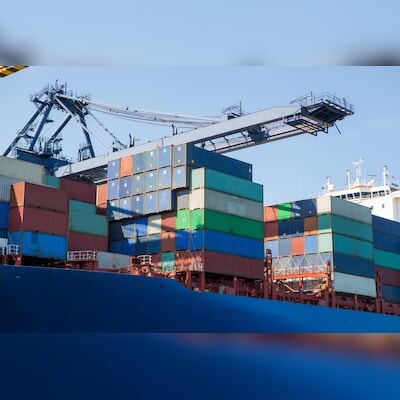Representative image: Trade (Photo: Shutterstock)
The Red Sea crisis and logistical challenges severely affected the country’s exports in August, which contracted by 9.3 percent, according to exporters and experts.
The GTRI think tank said the contraction in oil product exports by 37.56 percent to $5.95 billion in August is linked to the ongoing disruptions in the Red Sea.
These exports amounted to $9.54 billion in August 2023.
“This dramatic decline has significantly impacted India’s overall merchandise trade, resulting in a 9.33 per cent decline in August 2024 compared to the previous year,” Global Trade Research Initiative (GTRI) Founder Ajay Srivastava said.
Interestingly, he said, crude oil prices remained relatively stable between these two periods, suggesting that the drop in petroleum product exports is “linked to the ongoing disturbances” in the Red Sea.
The year-long disruptions have forced shipping routes to take longer routes around the Horn of Africa and the Cape of Good Hope, making exports to Europe less viable.
Federation of Indian Export Organisations (FIEO) President Ashwani Kumar said such a sharp decline in merchandise exports has come amid continued global economic uncertainties coupled with falling commodity prices and logistical challenges.
“The current disruptions in international trade, coupled with falling crude oil and metal prices, have also played a key role in reducing the value of exports. Some exporters have shifted to the domestic market as export profitability has been affected by the sharp increase in international freight rates (both sea and air),” he said.
Logistical challenges faced by exporters include lack of shipping space, irregular shipping schedule and ships not arriving at Indian ports.
“In absolute terms, the trade gap widened to $29.65 billion in August, compared with $23.5 billion in July, which is a cause for concern,” Kumar said.
Kumar added that there is an “urgent and immediate” need to take steps on the liquidity front with deeper support for interest subvention and extension of interest equalization scheme for at least five years, creating a predictable trading environment for exporters.
“The government should extend the RoDTEP (Remission of Duties or Taxes on Export Products) scheme, which expires on September 30, to enable exporters to plan ahead,” he said.
Mithileshwar Thakur, Secretary General, AEPC (Apparel Export Promotion Council), said apparel exports maintained their growth momentum amid global headwinds, growing at an average of 7.12 per cent during the April-August period.
“In August, readymade garments grew at an impressive rate of 11.88 per cent, demonstrating the resilience of the industry and the strength of Indian brands in meeting the global sourcing demand,” Thakur said.
He added that the industry’s order books are strong and the sector is hopeful of continuing this impressive growth.
First published: September 17, 2024 | 19:28 IS
Disclaimer:
The information contained in this post is for general information purposes only. We make no representations or warranties of any kind, express or implied, about the completeness, accuracy, reliability, suitability or availability with respect to the website or the information, products, services, or related graphics contained on the post for any purpose.
We respect the intellectual property rights of content creators. If you are the owner of any material featured on our website and have concerns about its use, please contact us. We are committed to addressing any copyright issues promptly and will remove any material within 2 days of receiving a request from the rightful owner.

